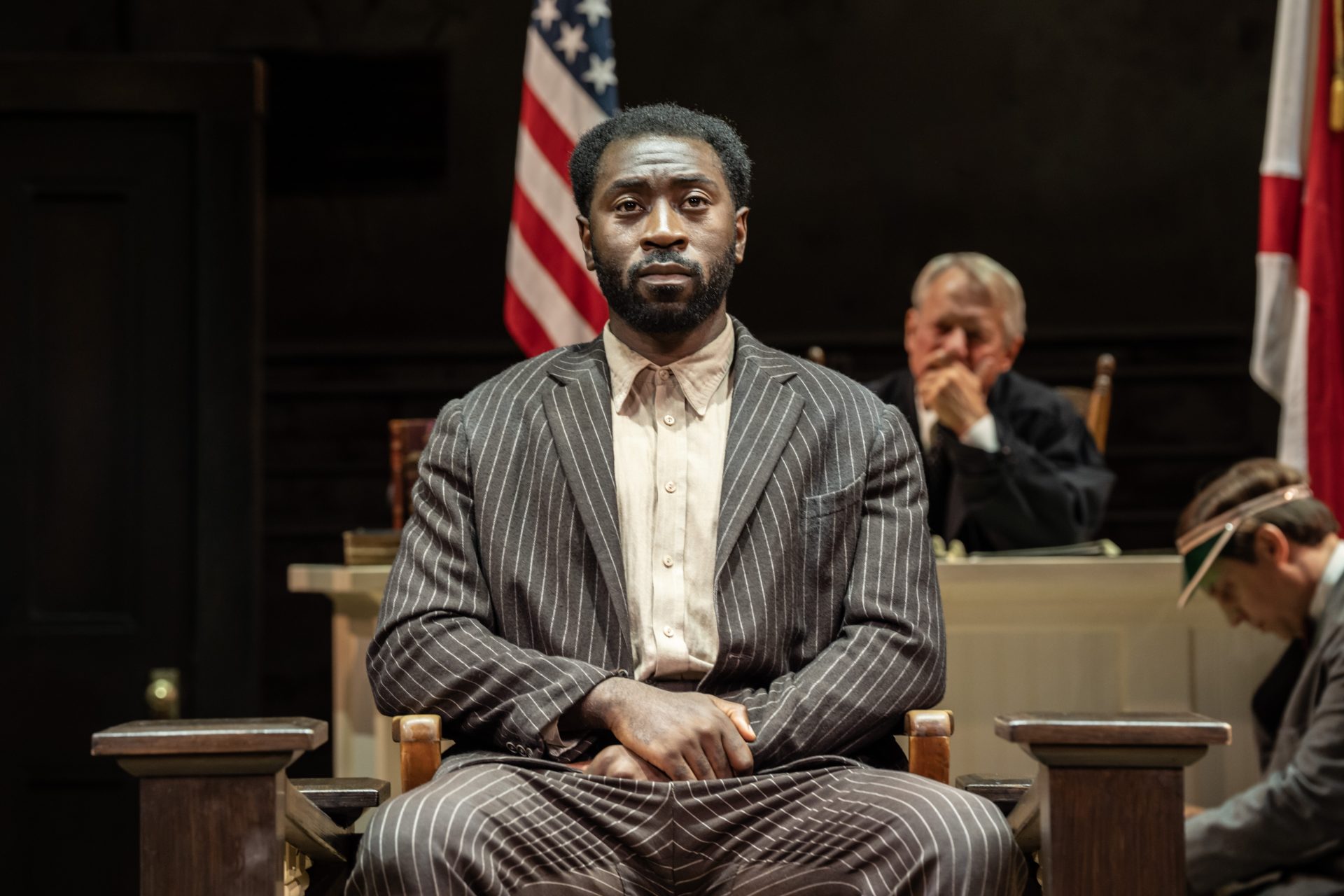To call Harper Lee’s To Kill a Mockingbird one of the great modern works of American literature feels like an understatement. Likewise, to describe adapting the novel for the stage a mammoth undertaking is an equal understatement. Yet writer Aaron Sorkin and director Bartlett Sher manage to deliver a magnificent production that honors the original text while updating the story for the modern age.
Following the events around court case of Tom Robinson – a Black man falsely accused from raping a white woman, Lee’s examination of racial injustice in Jim Crow-era America is as tragically relevant today as it was in 1960. However, while the novel was groundbreaking at the time, one must concede that some elements haven’t aged well. Sorkin himself has admitted the difficulty in balancing the weight of expectation that comes with such an adaptation with acknowledging that the narrative is undoubtedly one of white-saviourism.
Sorkin’s hesitancy to bubble-wrap the original narrative is understandable. Instead, he leans into the modern lens in a way that remains faithful while reflecting the current climate in the wake of the Black Lives Matter movement and narratives around race and migration in the U.S. The lingering presence of the Stars and Stripes at the back of the courtroom is a silent, yet powerful, reminder of the institutionalised racism that still festers at the heart of America.
Atticus Finch, portrayed superbly by John J. O’Hagan who steps in for Richard Coyle, isn’t the paragon of justice that he’s initially made out to be. Instead, he’s a flawed embodiment of the paradox of tolerance who believes “there’s goodness in everyone” even when his peers prove themselves to be monsters.
The addition of scenes that lend voice to the Black characters who were otherwise notably silent in the novel is a welcome change. The Finches’ maid Calpurnia, portrayed by Andrea Davy, holds Atticus accountable for his hypocrisy and makes her displeasure heard, while Aaron Shosanya is given a brief scene which allows Tom to rage against the situation he’s found himself in.
To Kill a Mockingbird also smartly avoids a straightforward retelling as it would ultimately lose one of the novel’s greatest strengths – Scout Finch’s youthful perspective. Rather, Scout, her brother Jem, and their friend Dill become the play’s narrators as they interject and bicker over the narrative and offer insight into the residents of Maycomb. Their enthusiastic storytelling bleeds into the play’s framework too as it jumps between the trial and the events leading up to it in a manner not dissimilar to a child’s retelling of any story.
The three children are brilliantly brought to life by Anna Munden, Gabriel Scott, and Dylan Malyn. They play off one another marvelously, and bring a great deal of lightness and humour to production. Indeed, the whole cast excel in their roles, especially Oscar Pearce as Bob Ewell, whose role is also expanded. Sorkin sought to emphasise the character’s hateful nature, drawing inspiration from the comment section of right-wing media outlet Breitbart. It shows as every line from Pearce drips with a venom that’s all too pertinent as he spews poisonous talking points that are still used today.
It’s important to remember that To Kill a Mockingbird’s presence on school curriculums is still regularly challenged in the U.S. It’s a reminder how little has truly changed, and emphasises why new adaptations like this are relevant. Especially when the production is so powerful.


Comments